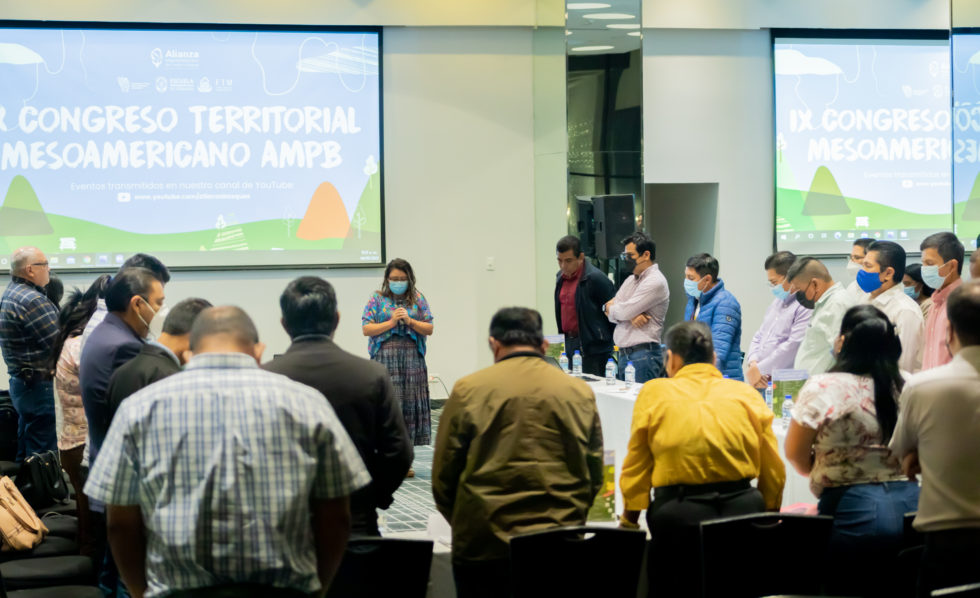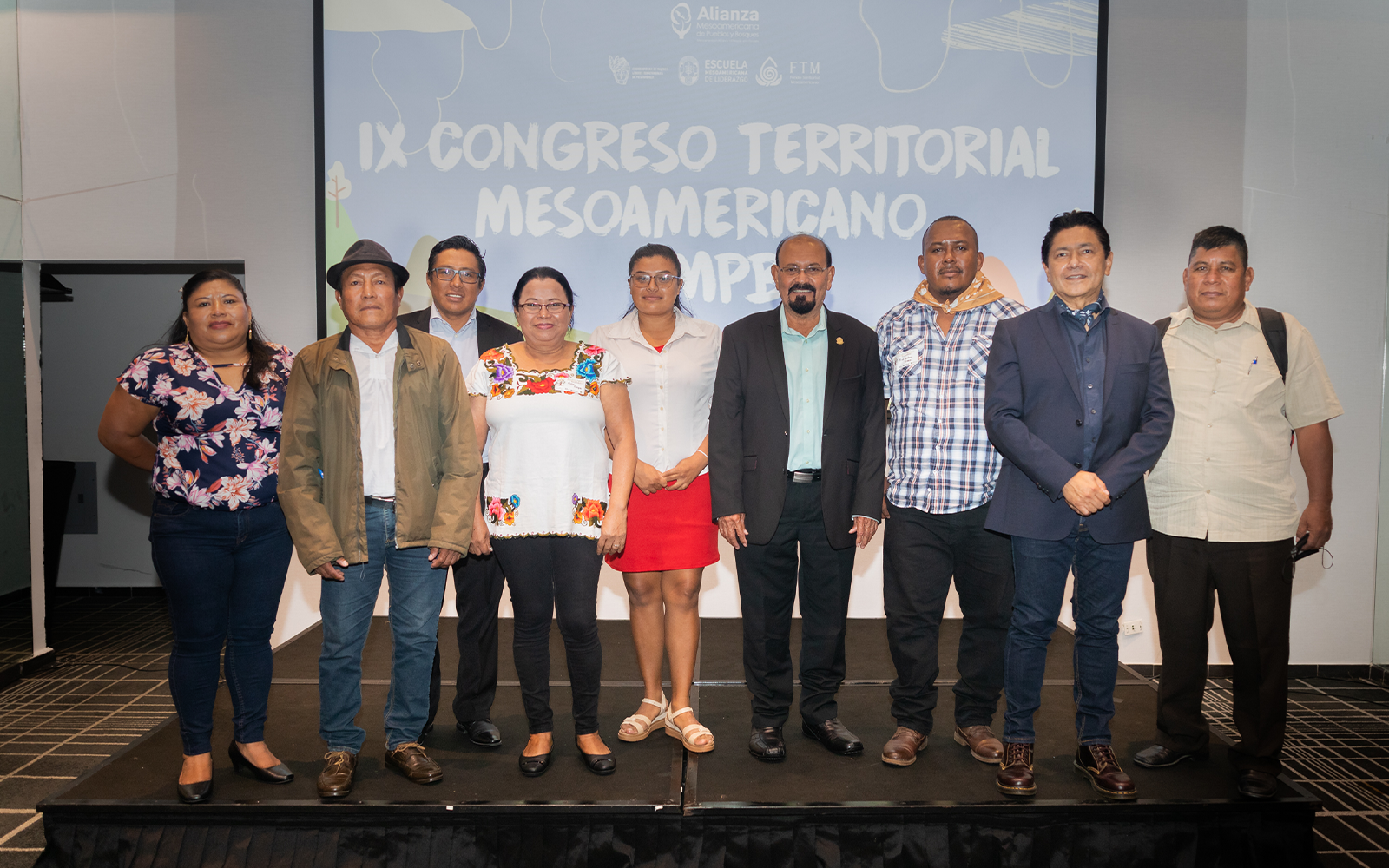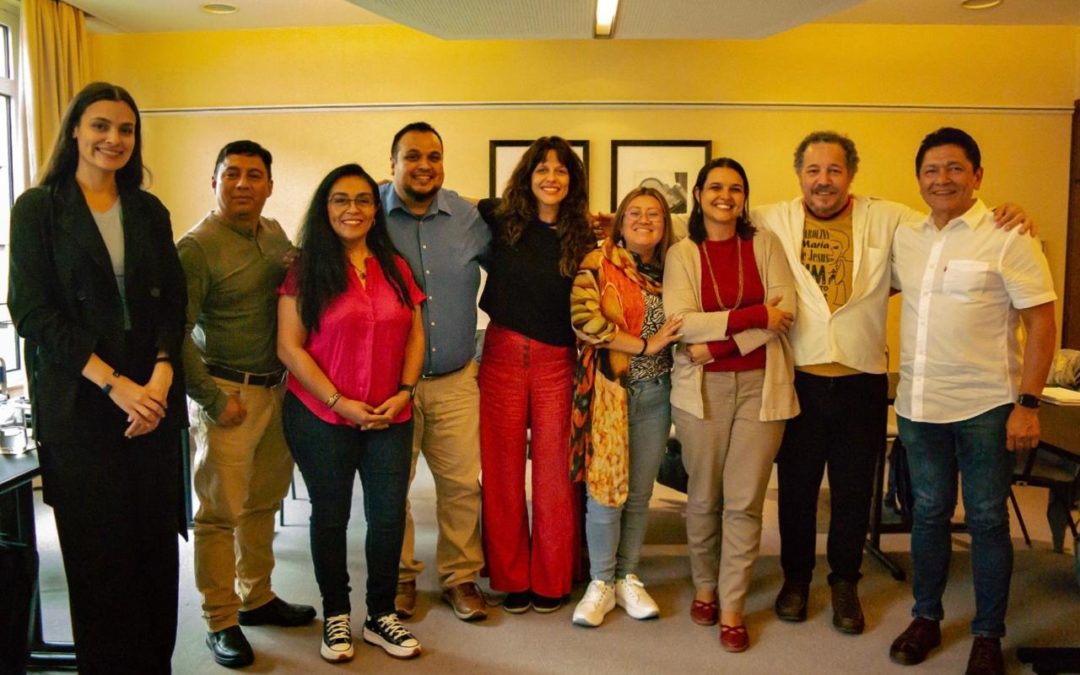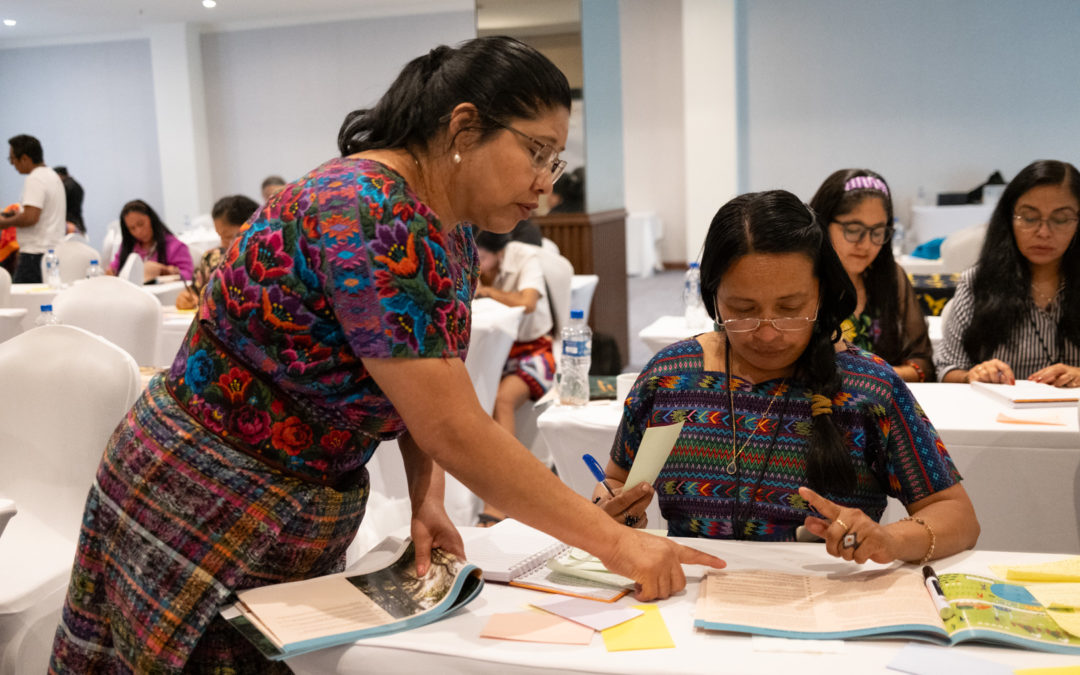The indigenous peoples and local communities of Mesoamerica strengthened their regional alliance with the legal formalization of the Mesoamerican Alliance of Peoples and Forests (AMPB). This April 5th, the AMPB celebrated its IX Mesoamerican Territorial Congress with the presence of the territorial authorities of its member organizations. The Congress approved the statutes that legally establish the AMPB in Panama and elected its first Board of Directors, which will have a term of three years, from 2022 to 2025:
Elected Board of Directors:
Chairmanship: Marcedonio Cortave, Association of Forest Communities of Petén (ACOFOP) – Guatemala
Vice President: Elizabeth Henriquez, Inhwanka Raya – Nicaragua
Secretariat: Gustavo Sánchez, Mexican Network of Forest Peasant Organizations (MOCAF Network) – Mexico
Sub Secretariat: Sara Madriz, Bribri Cabécar Indigenous Network (Costa Rica)
Treasury: Amalia Hernández, Federation of Agroforestry Producers of Honduras (FEPROAH) – Honduras
Member I: Anibal Sánchez, Guna General Congress (Panama)
Member II: Elvis Graham, Muskitia Asla Takanka (MASTA) – Honduras
Comptroller I: Cándido Mezúa, Emberá Wounaan General Congress – Panama
Comptroller II: Aricio Celso, Mayangna Nation – Nicaragua
Congress also ratified Sara Omi Casamá as legal representative of the organization; Levi Sucre Romero as General Coordinator of the organization; and Marvin Sotelo as Executive Secretary.
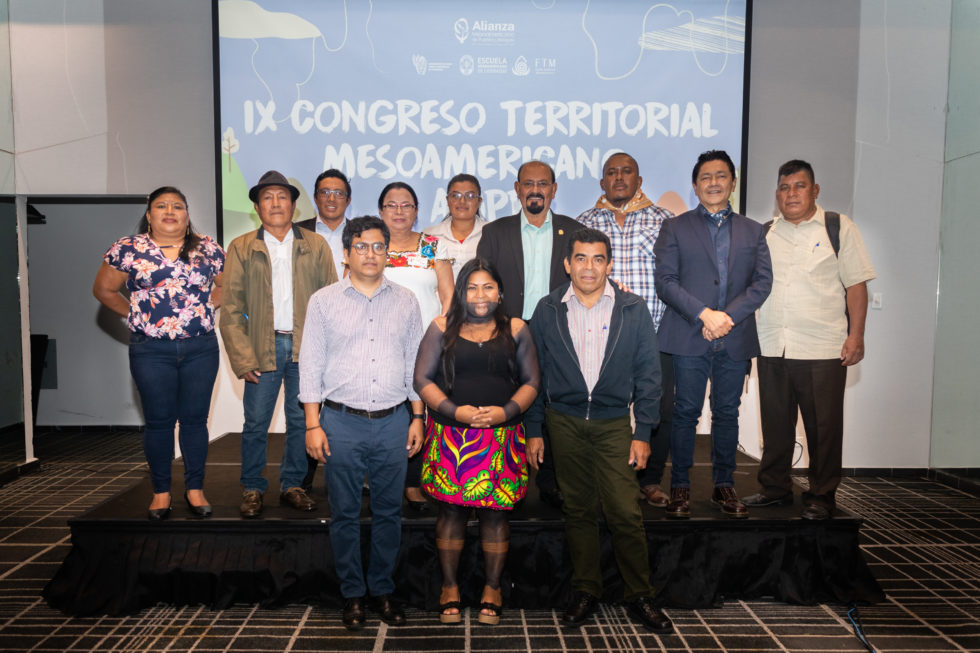
Indigenous and community women in decision-making bodies
Three women make up the first elected Board of Directors of AMPB: Elizabeth Henríquez, Sara Madriz and Amalia Hernández. This represents a significant advance in representativeness and gender equity in the governing bodies of AMPB.
The leaders join the Board as representatives of their organization and will form part of the largest governing body of the AMPB.
The leader Sara Omi, President of the Coordinator of Territorial Women Leaders (CMLT), will assume as legal representative of the organization. The CMLT has promoted the inclusion of women leaders in regional and global decision-making spaces.
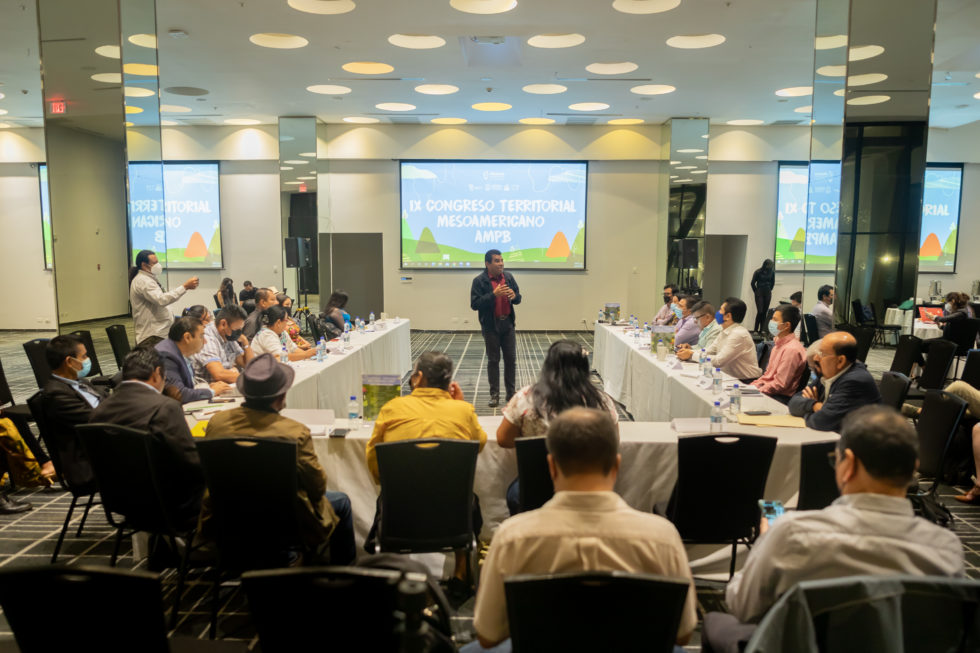
Utz Che’ is incorporated as a new member organization of AMPB
The Utz Che’ Forestry Community Association of Guatemala became the eleventh organization member of the AMPB. Utz Che’, is the first territorial organization to meet the membership requirements, approved in Assembly during the XIII Mesoamerican Territorial Congress of 2018.
Utz Che’ (good tree in the K’iche language) is a civil association made up of community organizations dedicated to the sustainable management of their natural resources, mainly forests, forest plantations and water sources.
Utz Che’ is a National Network in which various community, indigenous and peasant groups are articulated, with cultural, ethnic and organizational diversity, seeking social inclusion, fair and sustainable development, as well as respect for human rights and territories of the different peoples that make up Guatemala. The organizations associated with Utz Che’ have different forms of organization such as Partialities, Cooperatives, Indigenous Communities, Associative Peasant Companies (ECA) and Peasant Associations of the Mam, Poqomam, Pocomchi’, Popti’, Achi’, Kiche’, Kaqchiquel peoples. , Q’eqchi’, Chorti’, Q’anjob’al, Xinka and mestizos.
About AMPB
The AMPB is a space for coordination and exchange of territorial authorities that manage or influence the main forest masses of Mesoamerica. Indigenous governments and community forestry organizations that in the Alliance seek to strengthen their own dialogue, focused on community management of their natural resources, jointly seeking to influence governments and international cooperation so that strategies for the conservation of biodiversity and for the climate balance, appropriately integrate the rights and benefits of Indigenous Peoples and Forest Communities. In Mesoamerica, the indigenous peoples and forest communities have a historical influence over 50 million hectares of forests.
The AMPB works on two clear advocacy routes: the Community Forest Management agenda and the Territorial Rights agenda.
